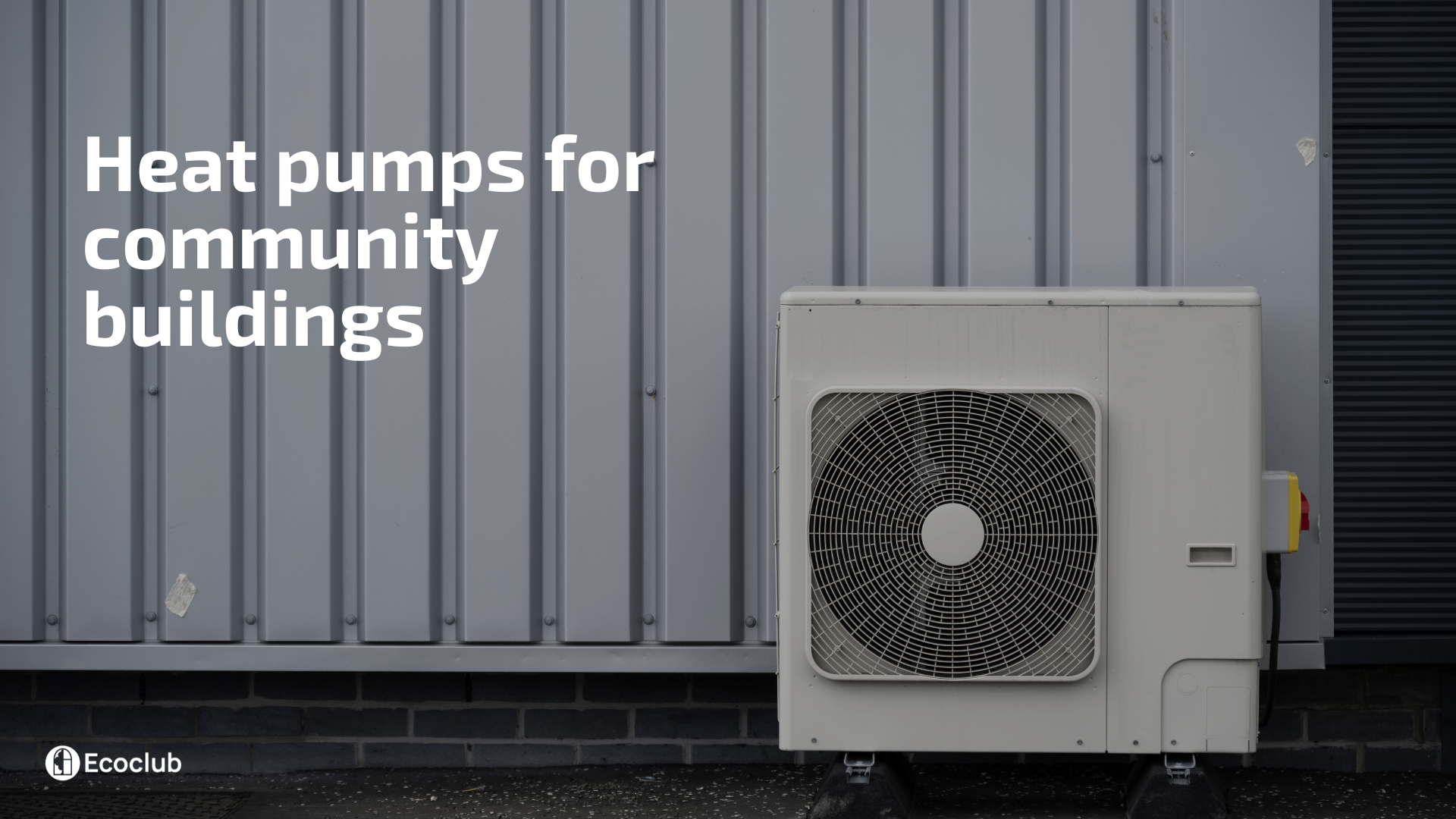In the face of energy deficits and increasing electricity tariffs, municipalities need reliable, low-cost heating for public buildings. Heat pumps may become a solution that will work sustainably and safely for the environment. Read further about heat pumps’ work, which buildings are profitable for installation, and where municipalities can find money for such projects.
What are heat pumps: work principles, types
Heat pumps are energy-efficient systems that use energy from the environment to heat or cool rooms. They work by ‘extracting’ heat from the air, ground or water and transferring it to the building’s heating or air conditioning system.
Heat sources for heat pumps may be in different environments. Among them:
- Air. The most multifunctional heat pumps gather heat from air. Their work principle is similar to modern conditioners: they can warm air in a room or be connected to a system of heating water and building heating. A disadvantage of such pumps is decreased productivity when temperature drops: when it’s 10 °С and colder, such heat pump will not work.
- Soil or water. More effective heat pumps gather heat from ground or natural water reservoirs. Their work is stable all year round, but such heat pumps need higher starting investment.
- Waste heat from infrastructure or industrial facilities. Such objects may become a new heat source for heat pumps. Waste heat from a metallurgical, chemical or woodworking plant, a bakery or a sewage plant is suitable.
Each type has special features and advantages, and so a municipality can choose a type that will best meet needs and opportunities. Any heat pump decreases heating needs, reduces greenhouse gas emissions and uses energy more efficiently. For 1 kW of consumed electricity a heat pump generated 2, 3 or even 5 kW of heat energy, depending on the type and using conditions. If we compare, traditional heating systems (individual electrical and gas boilers) are less effective, and they convert 1 kW of electricity or its equivalent into approximately 1 kW of heat.
Why municipalities decide to use this technology
Some communities search for ways to reduce energy expenses and increase the energy efficiency of buildings. One example is Zviahel municipality, which decided to install a heat pump for the needs of a local kindergarten within the project “Renewables for Sustainable Ukraine”. In this way, the community wants to reduce expenses for pull heating and supply comfort water temperature, independent of the season. In addition to the economy, a municipality will reduce emissions of harmful chemicals into the air, which will have a positive impact on the environment and the health of the community.
“It is quite expensive to maintain a swimming pool, which is important for children’s development. That’s why we decided to implement renewable energy projects to get a sustainable and long-lasting effect. First, we installed a solar power plant to power the pool’s heating elements. Later, we decided to supplement the solar power plant with a highly efficient heat pump that operates regardless of weather conditions. Thus, we have a comprehensive solution that minimizes the cost of pool maintenance,” – comments Yuriy Savych, Head of the Department for Support of Public Initiatives and Energy Efficiency of the Zviahel City Council.
The Kostopil municipality also decided to modernize its hot water supply system with a heat pump. It was installed to meet the needs of the city’s multidisciplinary hospital. The heat pump will cover 70% of the hot water needs and save money on electricity bills. The project cost is almost 1.5 million UAH. This includes the cost of the heat pump, its installation, and the restoration of the hospital’s hot water system. According to preliminary estimates, the community will save approximately 400 thousand UAH annually. The hospital will be able to use these funds for other energy efficiency measures, medicines, or the purchase of necessary equipment. The payback period of the project will be just over 3.5 years.
For which buildings is it profitably to install a heat pump and what it is needed for it
The heat pump is suitable for various types of public buildings: educational institutions, hospitals, sports centres and administrative buildings.
Ecoclub has developed 12 feasibility studies for the installation of heat pumps. The documents allow us to verify the efficiency and feasibility of their use to prepare hot water during the unheated period and to heat swimming pools.
We will be happy to share the documentation upon request from your community.
It is also beneficial to use heat pumps for hot water supply in the residential sector, especially in cities where there is no hot water supply in the summer. And with rising gas prices for households, it will be advisable to use heat pumps in heating systems as well.
Before installing a heat pump, a preliminary analysis is necessary:
– assess the needs of the building,
– determine the most suitable type of pump,
– calculate the initial costs of equipment and installation,
– prepare the necessary permits and documentation for the installation of the system.
Ecoclub experts can help communities with this. To get a consultation, please contact Mykhailo Lukianyk, district heating coordinator, at lukyanyk@ecoclubrivne.org.
Where Ukrainian municipalities can find costs for installing a heat pump
Often, communities that want to install heat pumps cannot do so because of limited funding. However, there are opportunities for communities to raise funds for such projects. Among them:
– international donor programs and grants (UNDP, GIZ and USAID) often support projects that improve energy efficiency and reduce greenhouse gas emissions;
– national programs and state funds can also be a source of funding;
– energy service mechanism or ESCO contract allows for the implementation of energy efficiency measures without capital investment by the community;
– regional support programs, revolving funds;
– concessional loan programs from international financial institutions (NEFCO, European Investment Bank);
– loans from financial institutions.
Every two weeks, Ecoclub shares relevant competitions and grant opportunities in the Energy and Climate Digest. Subscribe to be the first to know about them: http://https://forms.sendpulse.com/24b01151fc/











